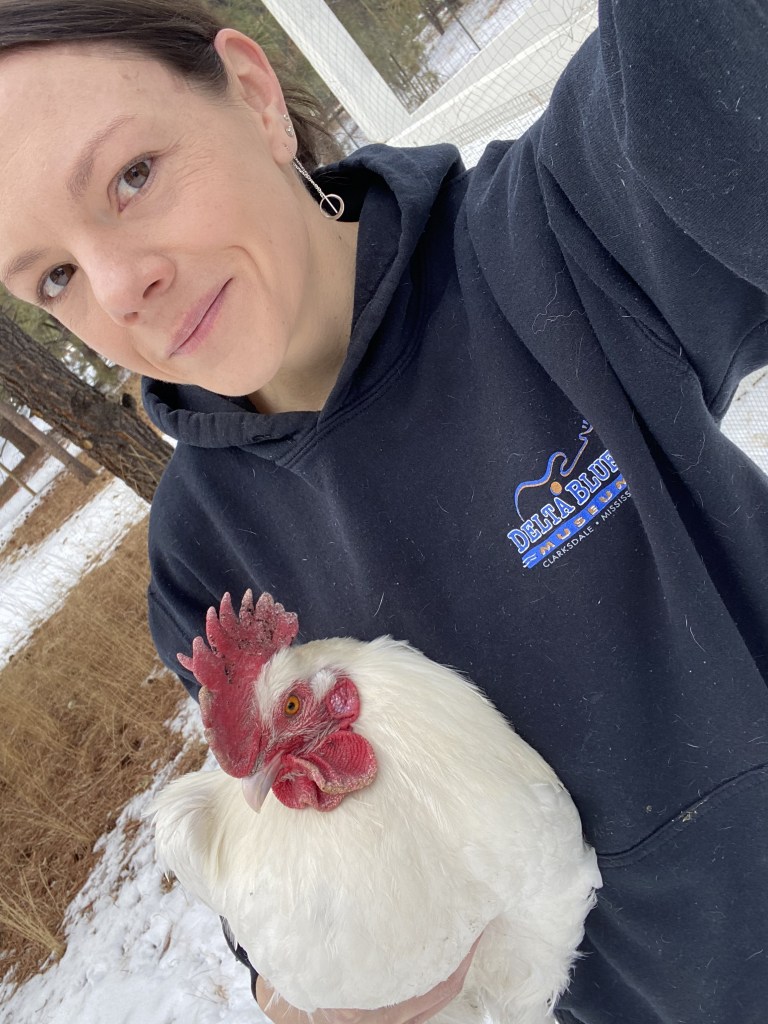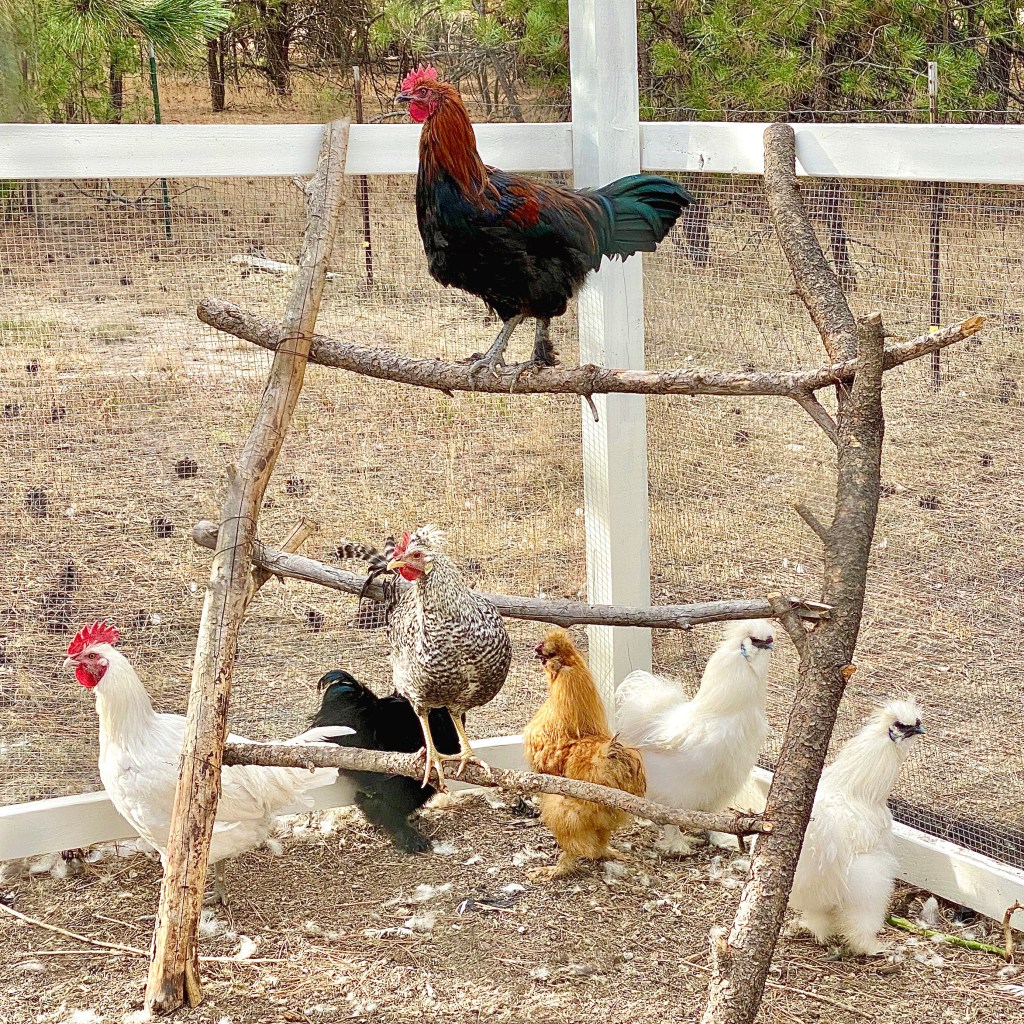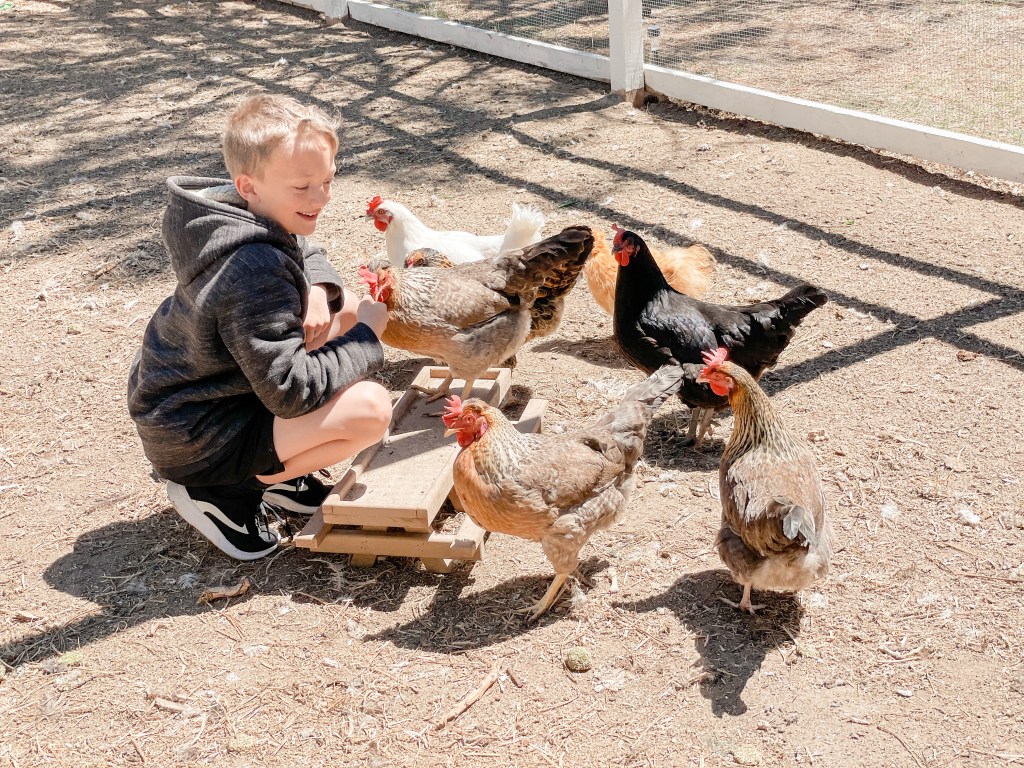
As winter blankets the landscape with snow and chilly temperatures, your feathered friends – the chickens – require a little extra care to ensure their well-being. Just like any other season, maintaining the health and comfort of your flock during winter is vital. In this blog post, we’ll explore essential tips and practices to keep your chickens healthy, happy, and thriving through the colder months.
1. Provide Adequate Shelter:
A warm and dry coop is essential for your chickens’ winter comfort:
- Insulation: Ensure your coop is well-insulated to prevent drafts and keep the interior temperature more stable. Preventing drafts is one of the most important things you can do to keep your chickens warm in the winter.
- Ventilation: While insulation is important, proper ventilation is equally crucial to prevent moisture buildup and ammonia odors. Ventilation should be towards the top of the coop to keep air flow without drafts or allowing moisture to enter the coop.
2. Deep Bedding:
Bedding helps insulate the coop and provides a cozy environment:
- Deep Layers: Use straw, wood shavings, or other bedding materials to create a thick layer on the coop floor.
- Regular Cleaning: While deep bedding provides warmth, it’s important to keep it clean and dry to avoid mold and odors.
3. Provide Ample Food and Water:
Winter requires extra energy to stay warm, so ensure your chickens have access to plenty of food and fresh water:
- High-Quality Feed: Feed your chickens a balanced diet rich in protein to help them maintain their body heat.
- Heated Water: Invest in a heated waterer to prevent water from freezing and provide hydration.
4. Keep Active:
Encourage your chickens to move around and stay active even during cold weather:
- Clear Pathways: Clear snow and ice from outdoor areas where they roam to prevent frostbite and encourage movement.
- Dust Baths: Provide a dry area for dust baths to help keep feathers clean and free from pests.
5. Provide Extra Heat Sparingly:
Chickens are naturally equipped to handle the cold, but in extreme cold conditions, you can consider supplemental heat:
- Safe Heaters: If you decide to use a heater, opt for safe heating options designed for coops and ensure proper ventilation. I highly discourage the use of heat lamps because of the risk of fire.
- Avoid Overheating: Chickens can be sensitive to sudden temperature changes, so avoid drastic shifts in temperature.
6. Prevent Frostbite:

Frostbite can affect combs, wattles, and toes:
- Apply Petroleum Jelly or Bag Balm: Apply a thin layer of petroleum jelly to combs and wattles to help protect against frostbite.
- Wide Roosting Bars: Provide wide roosting bars to allow chickens to tuck their feet under their bodies and keep them warm. We use 2x4s as roosting bars to help keep their feet warm.
7. Check Health Regularly:

Regular health checks are important during winter:
- Observe Behavior: Watch for signs of illness, such as lethargy, decreased appetite, or difficulty breathing.
- Separate Sick Birds: If you suspect a chicken is sick, isolate it from the rest of the flock to prevent the spread of illness.
Winter care for chickens is all about creating a comfortable environment that addresses their specific needs during cold weather. By providing adequate shelter, food, water, and attention to their health, you can ensure that your feathered companions stay healthy, warm, and content throughout the winter months. With a little extra effort and care, you’ll have a flock that continues to thrive and produce even in the chilliest of seasons.








